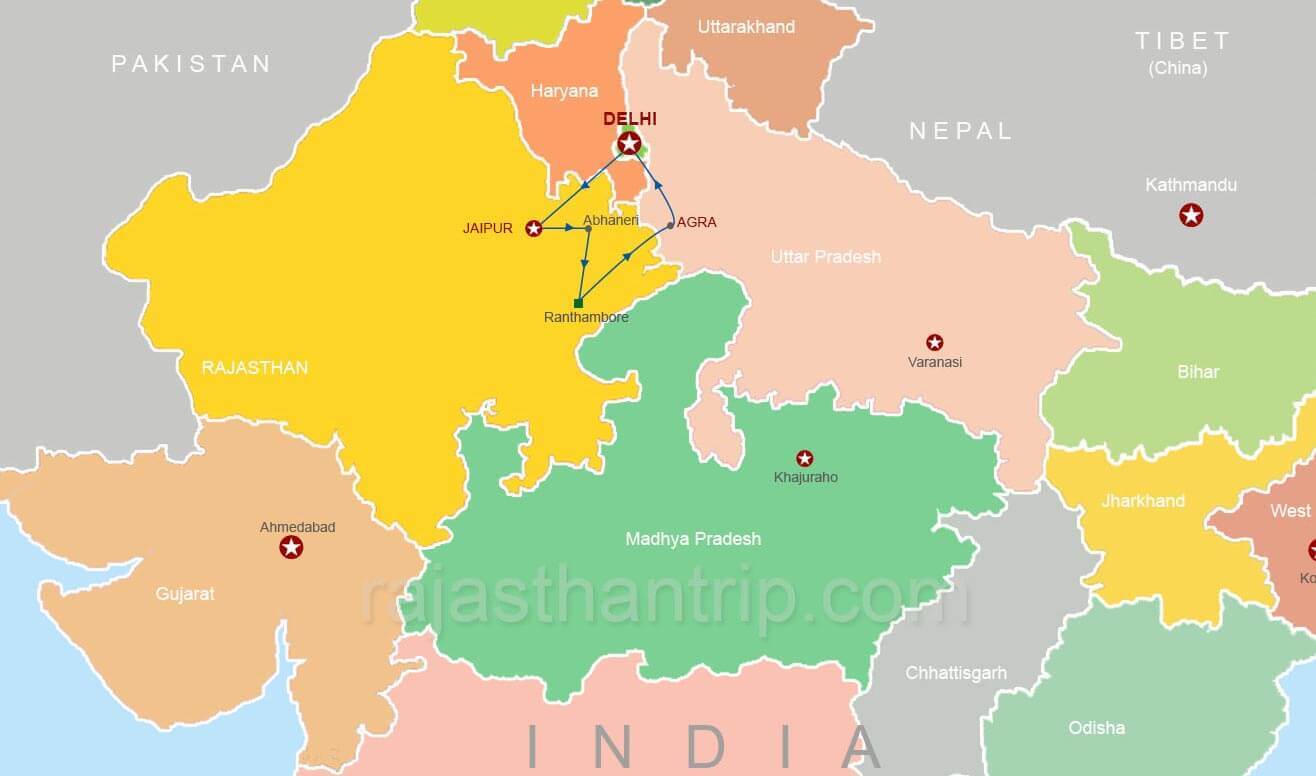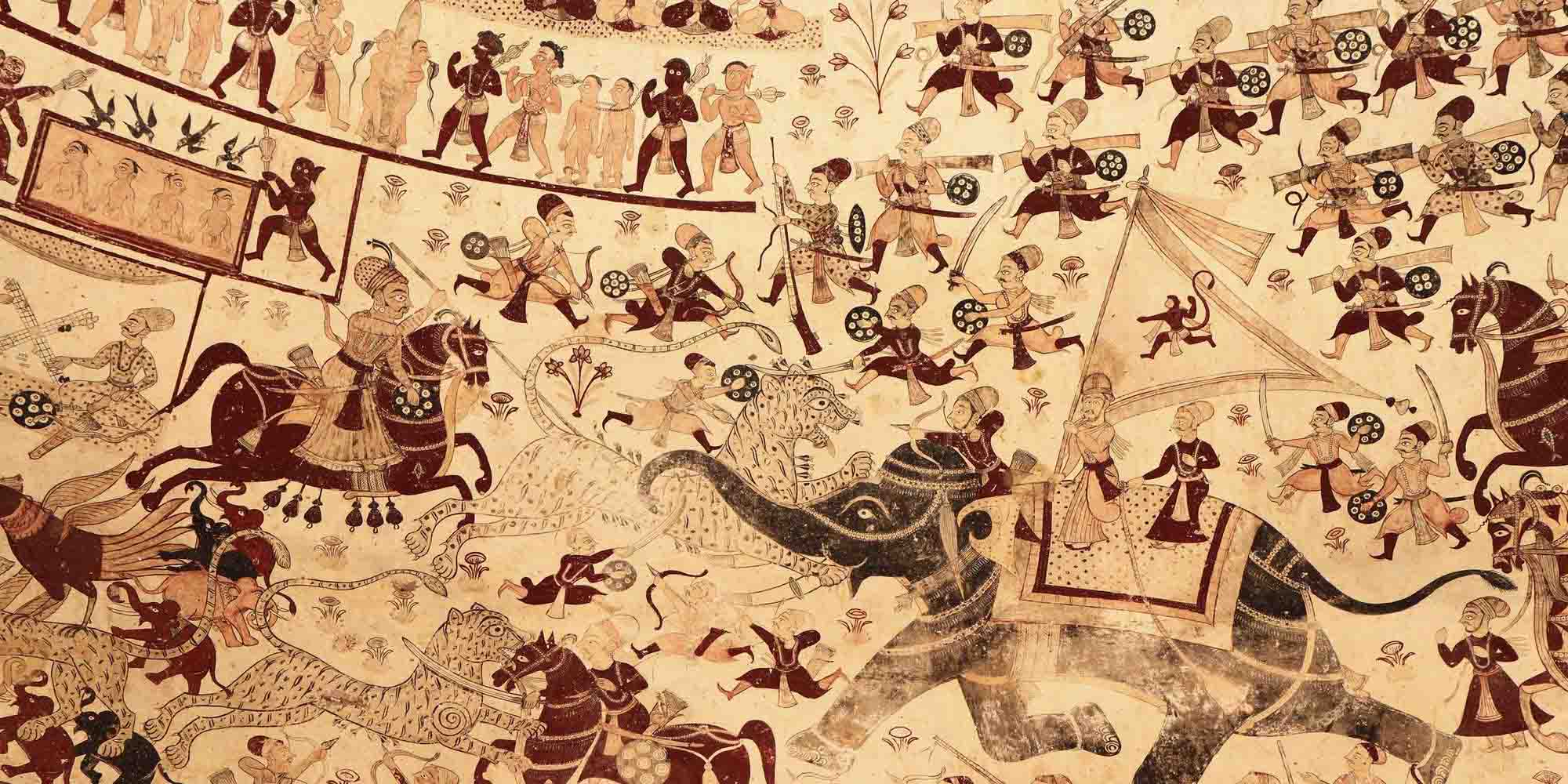10 Facts About Rajasthan The Land of Maharajas
How many deeply established cultures have produced exclusive beliefs and ways of thinking that have eventually persisted
in civilizations, from natural splendor to man-made wonders, is admirable. Given that these notions are currently seen
as being true, every traveler who wants to experience Rajasthan's fantastic experiences must be aware of them.
There are many facts about this amazing tourist spot in India that astound visitors. It is admirable how many deeply
ingrained cultures have given rise to exclusive ideas and attitudes that have eventually sustained civilizations, from
geographical riches to man-made wonders. Every traveler who wants to experience Rajasthan's wonderful experiences must
be aware of these beliefs and truthfulness because they are now considered to be fascinating facts about the state of
Rajasthan.
10 Facts to Know About Rajasthan, The Land of Maharajas
The following fascinating facts about Rajasthan have surprised visitors from all over the world. Color-schemed cities
with friendly residents, mouthwatering foods, and real spices, and chronicled tales of realms and geography. Now read
all the details and get all the information regarding the same.
1. Geographical Area – The Largest State Of India
Rajasthan has the largest geographical area in India which covers an area of 342,239 sq km with a population of 68548437
(according to the Census 2011). It has around 22 kingdoms of princely states that combined under an ordinary name,
Rajasthan on 30th March 1949. The tropic of cancer is also passing through its southernmost tip.
Pakistan shares the state's whole western frontier, and Punjab, Haryana, Uttar Pradesh, and Madhya Pradesh border
Rajasthan in the north, south, and east, and Gujarat in the southwest.
2. Bhangarh: The Most Haunted Fort
One of the scariest forts of India is Bhangarh, which is situated in the Alwar area. Raja Bhagwant of Amber built the
fort in the sixteenth century. A black magician who allegedly made an attempt to marry the stunning princess Ratnavati
is thought to have cursed the entire village of Bhangarh. Since Bhangarh is closed between dusk and dawn, visitors can
only experience the excitement of this location during the day.
There are some other temples, such as the Someshwar, Mangla, Gopinath, and Keshav Rai temples. The temples remain
healthy. They have withstood the test of time and the effects of conflict. The family of the evil sorcerer Sindhiya
takes care of the Someshawar Temple, which is open to visitors.
3. Kalibangan –The World’s Earliest Attested Ploughed Field
In Rajasthan's Kalibangan, which is near the confluence of the Drishadvati and Saraswati Rivers, you may find the
remains of the civilizations that once called this region home throughout pre-Mauryan and ancient times. The oldest
known plowed field in the entire world is located in the Kalibangan region.
There were two entrances in the Kalibangan citadel construction, one on each side of the north. The southern entrance is
a brick building, 2.6 meters wide, with oblong salients on either side of the entrance step. There is a mud brick
staircase in the northern building. The northern portion of the compound, which included a road, was where the elite
resided.
4. Thar: The Great Indian Desert
Thar, the ninth-largest subtropical desert in the world, is proudly located in Rajasthan. Thar is a remote desert that
is located in Rajasthan for 60% of its total area, with smaller portions also being in Punjab, Gujarat, Haryana, and
Sindh (Pakistan). The area is dry for the majority of the year, with brisk winds creating shifting dunes.
The great Thar desert lies in the Aravalli hills and close to the great rann of kutch along the coast.
5. Kumbhalgarh Fort: Longest Walls In The World
Maharana Kumbha built Kumbhalgarh Fort in its current configuration. Kumbhalgarh Fort is one of the most elaborate forts
in India due to its huge structure. The fort is situated on a hilltop at a height of 1,100 meters, and its perimeter
walls reach a distance of 36 kilometers. The palace reportedly has the world's longest outwork.
The Kumbhalgarh fort in Rajasthan is the fort that has established itself as having the second-largest wall after the
Great Wall of China. The powerful fort that encircles Udaipur is 38 km long and 3600 ft tall. Rana Kumbha was thought to
have constructed it in the fifteenth century.
6. Hawa Mahal- The Place for Breeze
The Hawa Mahal, popularly referred to as the "Palace of Breeze," was added to Jaipur's Royal City Palace in 1799. It
enables the royal women, who at the time adhered rigorously to "pardah," to witness any processions and other street
activities without being observed by the general population.
7. Aravalli – The Oldest Fold Mountains
The Aravalli Range is one of the oldest fold mountain ranges in the world, stretching approximately 560 km, with the
majority lying in Rajasthan. These rugged hills were formed from ancient Cratonic collisions and are rich in floral
diversity, especially medicinal plants. The forests here are dry and deciduous, dotted with striking rose-colored
quartzite rocks.
Highlights: Ancient geology, rich flora, scenic hiking routes, rose quartz landscapes
8. Vibrant Culture – Colour-Coded Cities
Rajasthan's major cities are color-themed, offering visual identity and cultural symbolism. Jaipur is famously known
as the "Pink City" after its buildings were painted pink to welcome the Prince of Wales in 1876. Jodhpur is the
"Blue City," originally indicating Brahmin homes, while Jaisalmer is the "Golden City," reflecting the sandy hues of
the Thar Desert.
Highlights: Jaipur's pink buildings, Jodhpur’s blue-hued old town, golden sandstone of Jaisalmer
9. Mandore – Ravana’s In-laws' Residence
Mandore, located near Jodhpur (not Jaisalmer), is steeped in mythological significance. It is believed to be the
native place of Mandodari, wife of the demon king Ravana. According to legend, their wedding took place here, and
the site known as "Ravana Chavira" commemorates this union.
Highlights: Mandore Gardens, ancient temples, mythological legacy
10. UNESCO World Heritage Sites
Rajasthan is home to eight UNESCO World Heritage Sites, showcasing the state's architectural grandeur and natural
splendor. These include Chittorgarh Fort, Kumbhalgarh Fort, Ranthambore Fort, Gagron Fort, Amber Fort, Jaisalmer
Fort, the Keoladeo National Park, and the astronomical marvel of Jantar Mantar in Jaipur.
Highlights: Rajput forts, ancient science monuments, protected bird sanctuary















